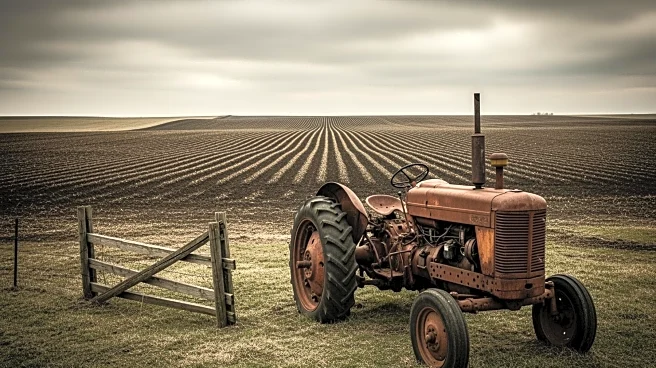What's Happening?
The agricultural sector in the upper Midwest is experiencing a downturn, with farm incomes declining and credit quality weakening. According to a survey conducted by the Federal Reserve Bank of Minneapolis,
83% of agricultural lenders in the region expect farm incomes to decrease, while capital spending is also projected to decline. Despite a decrease in interest rates, financing new machinery or land purchases remains challenging. Bankruptcy filings have increased slightly, and unless market conditions improve, this trend is expected to continue. The survey also highlighted stable or increasing land values, although rental rates have decreased slightly.
Why It's Important?
The economic challenges facing the agricultural sector in the upper Midwest have broader implications for the U.S. economy. As farm incomes decline, the financial stability of rural communities is threatened, potentially leading to increased bankruptcy filings and reduced capital investment. This situation could impact food production and prices, affecting consumers nationwide. Additionally, the reliance on government payments to support farm incomes underscores the vulnerability of the sector to policy changes. The pessimism among lenders reflects concerns about the sustainability of current economic conditions, which could influence future agricultural policy and investment decisions.
What's Next?
If market conditions do not improve, the agricultural sector may face further financial strain, leading to more bankruptcy filings and reduced investment in farm operations. Stakeholders, including policymakers and agricultural organizations, may need to explore strategies to support farmers and stabilize the sector. This could involve advocating for favorable trade policies, increasing access to credit, or enhancing government support programs. The ongoing economic challenges may also prompt discussions about the long-term sustainability of farming practices and the need for innovation to improve resilience.









